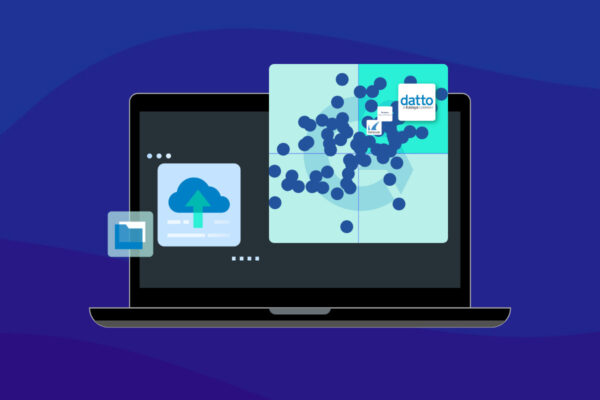What Is a Diskless NAS?
How quickly clients or employees can access data on your network can make or break job performance and productivity.
One answer to the problem of server storage overload is Network-Attached Storage (NAS), which includes the file-sharing components of a server but does not run applications like a computer.
NAS eliminates the file-server function from general servers and provides faster, more reliable access to data on a network.
In this article, we explain the benefits of NAS and when to choose a diskful vs. a diskless NAS.
What Is NAS?
NAS systems are hard disk storage devices that connect to your network, allowing for multiple computers in a network to share the same storage space – at the same time.
A NAS device acts as an access control point for multiple users in various locations all attempting to connect to a business’ internal network. It makes sharing data and files much cleaner and more efficient.
Think of a NAS system as a self-contained computer connected to a network used for the sole purpose of data storage. They typically contain one or more storage drives, often arranged into RAID or “Redundant Array of Independent Disks.”
RAID distributes data across different disk drives, preventing data loss by increasing performance and reliability of data storage.
Why Use NAS?
NAS allows businesses to create multiple network drives, add users, and assign storage to users, on shared resources.
There are several benefits to using NAS:
- Expandable: You can scale your storage capacity on your terms by merely adding another NAS unit if you need more storage space.
- Fault Tolerance: NAS systems are comprised of more than one hard disk drive, often arranged into RAID meaning your NAS is least likely to be the point of failure for your network.
- File-Sharing: NAS allows you to share large amounts of data with other users in your network more easily and more efficiently.
- Cost-Effective: NAS allows you to add storage to your existing network without having to replace existing servers. It’s an affordable and scalable answer to potential server overload.
- Data Reliability: NAS usually comes alongside RAID which provides an added layer of fault tolerance to your network.
- Private Cloud Storage: NAS allows users cloud-based storage that is completely private and only accessible by those with permission to access the network.
Diskful vs. Diskless
Once you’ve decided to purchase a NAS, you must determine if you would like one with (diskful) or without (diskless or Bring Your Own Drive) drives.
A Diskless NAS unit is sold without drives and allows the user to plug in their own hard drive, thereby setting their own storage capacity.
There are several benefits to a diskless NAS:
- Diskless NAS systems allow for users to replace drives. Diskful drives often have restricted access.
- Diskless NAS units allow the user to use different sizes and brands of drives, to personalize the features they want.
- When a new drive is installed, a diskless NAS automatically initializes the new drive. A diskful NAS cannot initialize new drives on its own.
Ultimately choosing which type of NAS to purchase comes down to the size of the server you need, your budget, and the additional features your business needs.
A NAS is an easy solution to server overload, cloud storage, and automated backups. They can be an easy addition to your onsite data backup strategy. It should be considered another important aspect of your business’ disaster recovery plan.
To learn more about network-attached storage systems, contact Datto.




